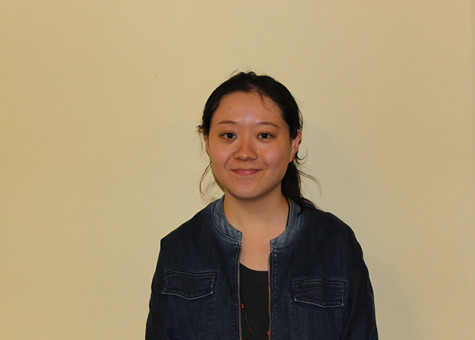Students aim for insurance
November 16, 2016
Correction:
In the Advocate’s Nov. 16 issue, an article “Students aim for insurance” may have incorrectly implied that International Students Organization insurance had not met obligations to customer Yan Zhao. The implication is not true because Zhao’s student organization insurance plan did not become effective until Oct. 3, according to Zhao. Student organization insurance was not obliged to provide coverage on Zhao’s $3,900 bill generated Oct. 2.
Clarification:
In the Advocate’s Nov. 16 issue, an article, “Students aim for insurance,” may have misled readers by suggesting an initial notification that international students needed health insurance was issued Oct. 27.
International students, in fact, were notified as early as May that they needed to sign up for health insurance.
Kristen Majocha, interim International Program Director, emailed incoming international students to recommend they purchase medical insurance and provided them with relevant information including the Sept. 1 deadline for insurance enrollment.
Some Pitt-Johnstown international students are rethinking their health insurance.
Sinking into a ripped, gray couch Nov. 3, his lips pale after he returned to his dormitory from a hospital where he spent seven and a half hours, freshman Yan Zhao from Beijing said a doctor had diagnosed him with an acute heart disease caused by a viral infection.
A month before, a campus police officer took Zhao to Conemaugh Memorial Medical Center’s emergency room after he had reported having a fever of 103 degrees for three or four days, Zhao said.
He was diagnosed with pneumonia. It is unclear whether the treatment he received for that contributed to his heart disease.
After the Oct. 2 emergency room visit, however, what worried him more was not his illness, but the medical bill. He did not have adequate health insurance, he said.
According to Zhao, he paid $3,900 for the single visit after his insurance company, International Student Organization Insurance, co-paid only $200.
The company’s website shows an office address in the state of New York. However, ISO Insurance is not a registered corporate name in the state, according to New York State Department of State.
Jodi Ann, a company customer care service respondent representative, declined to comment on coverage details, or provide the company’s legally registered name..
Zhao said he bought new health insurance from University of Pittsburgh Medical Center after he paid the $3,900 bill.
The new insurance retroactively covered about 60 percent of the $3,900, and may cover about 70 to 80 percent of future medical bills, according to Zhao.
Sophomore Eason Xianhua Diao from Shandong Province, China, who also bought retroactive medical insurance, said he was almost forced to do so by a new Pitt-Johnstown rule.
On Oct. 27, international students received an email regarding this rule from interim International Program Director Kristen Majocha.
The email said that Pitt-Johnstown’s provost now requires international students to prove adequate health insurance from Sept. 1 to Dec. 31.
Not having adequate insurance results in an academic hold, which prevents students from enrolling in next semester’s classes, the email said.
Diao said he bought an International Students Organization insurance plan effective Nov. 1 to April 29, which fails to fulfill the new rule’s requirement.
He bought two-month medical center retroactive insurance to remove his academic hold as International Students Organization insurance does not offer retroactive insurance, Diao says.
Majocha said the requirements are policies mandated by Pitt-Oakland officials, and have been enforced strictly by Pitt-Oakland’s International Services Office staff since this semester.
Diao said he found the new rule unreasonable, as he did not need any medical service in September and October.
“Who would (always) remember to buy health insurance before every semester?” he says.
Freshman Michelle Seo Young Hong from Seoul, South Korea, said she was not aware of the new rule.
Hong said she bought an international students’ plan at the beginning of the semester, which automatically meets the new rule’s requirement.
International Students Organization Insurance’s website says an insurance plan can cost as little as $31 per month, but the medical center’s least expensive insurance costs $189, according to its website.
Benefit statements on both company’s websites, however, are difficult to understand even for American students.
A 2013 online article from “Inside Higher Ed,” a daily news publication about higher education, says the private international student health insurance market may be misleading to international students nationwide.
The article, “Buyer Beware” by Elizabeth Redden, mentions International Students’ $31 plan as having flimsy coverage.
“If you need surgery, the maximum benefit is $3,000. If you need chemotherapy or radiation treatment, the maximum benefit is $1,000,” according to the article.
Zhao said he feels lucky that the medical center retroactively co-paid over half of his past bills.
He is now worried about issues other than his medical bills, such as his absences from classes due to his illness, even though he has withdrawn from one class, he said.
“(My parents) know about (my medical conditions) now. (They are) very worried.”

